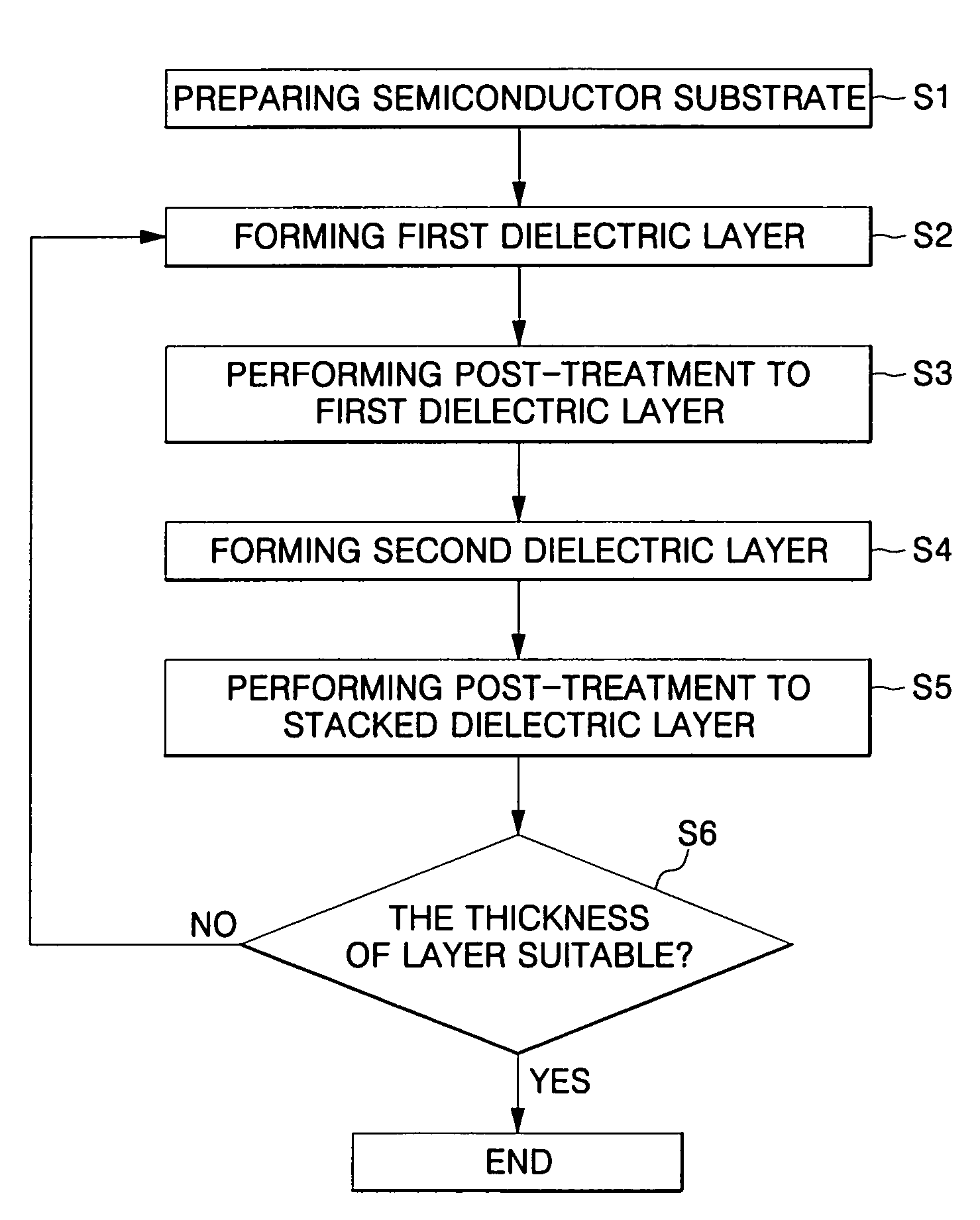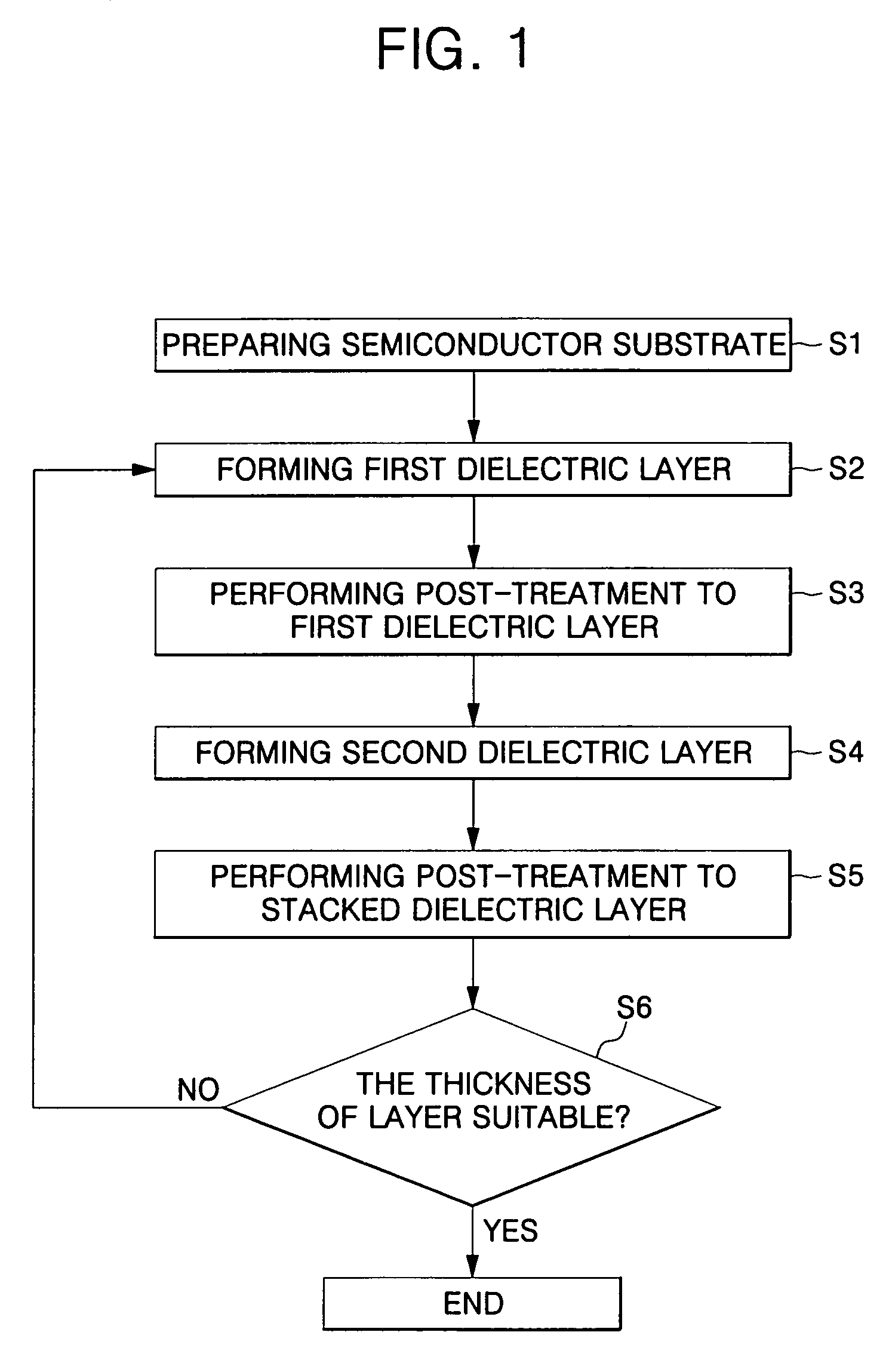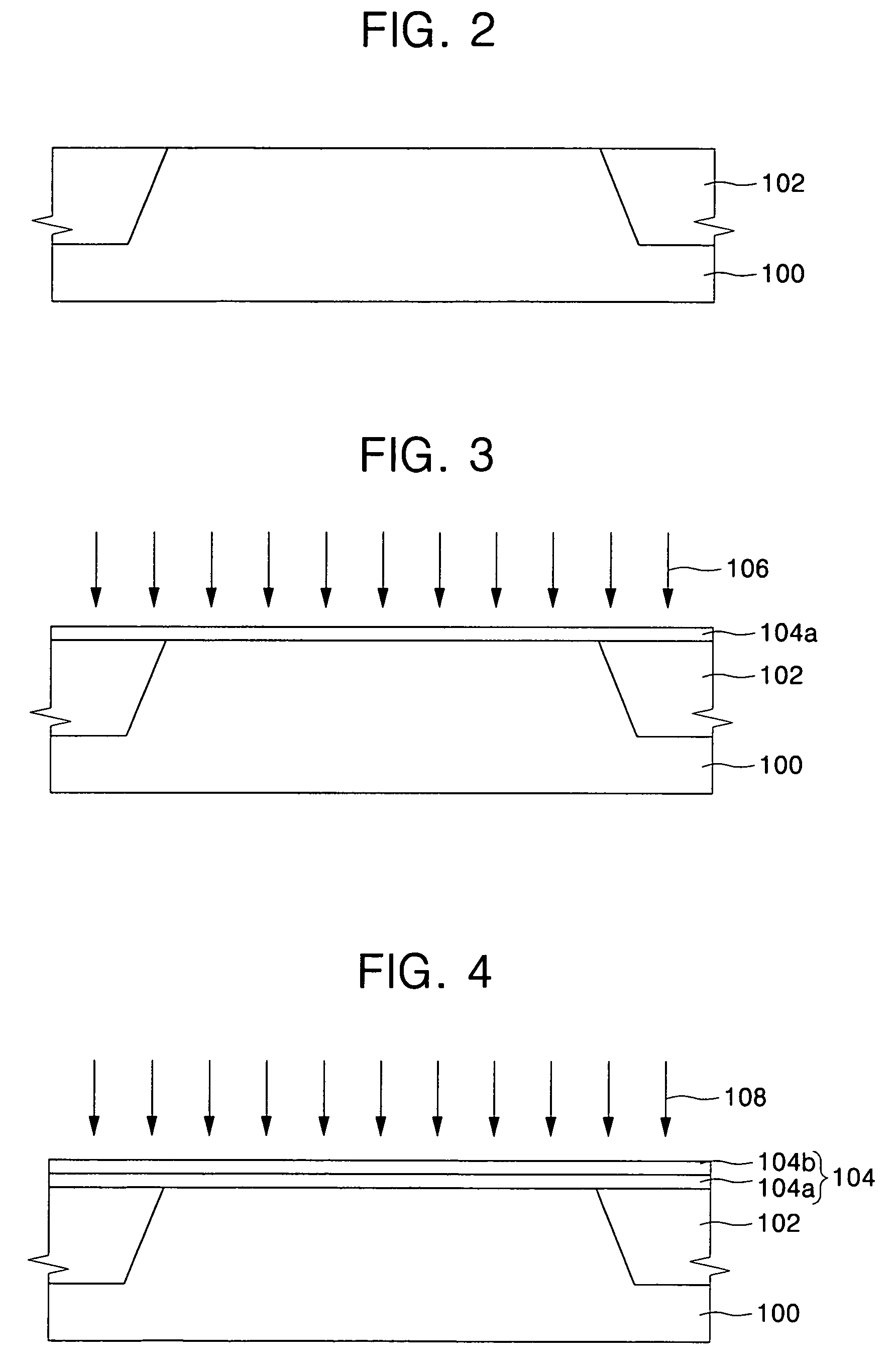Method of fabricating high-k dielectric layer having reduced impurity
a dielectric layer and impurity technology, applied in the direction of mechanical equipment, coatings, semiconductor/solid-state device details, etc., can solve the problems of increasing leakage current, deteriorating carrier mobility, increasing leakage current or increasing leakage curren
- Summary
- Abstract
- Description
- Claims
- Application Information
AI Technical Summary
Benefits of technology
Problems solved by technology
Method used
Image
Examples
experimental examples
[0038]FIGS. 6A and 6B are secondary ion mass spectrometry (SIMS) graphs illustrating a change of impurity content in a dielectric layer over time during the course of a post-treatment step in accordance with this invention. FIG. 6A shows a change of chlorine content, and FIG. 6B shows a change of carbon content. In FIGS. 6A and 6B, the graphs are based on results of the post-treatment for samples under conditions of the following Table 1.
[0039]
TABLE 1sampleDielectric layerPost-treatmentFirst sample (10)ALD SiO2xSecond sample (11)450° C., heat treatment in O3atomosphereThird sample (12)700° C., heat treatment in N2atomosphereFourth sample (13)750° C., heat treatment in O2atomosphereFifth sample (14)750° C., heat treatment in NH3atomosphereSixth sample (15)750° C., heat treatment in NH3atmosphere + heat treatment inO2 atomosphereSeventh sample (20)700° C., heat treatment in N2atomosphereEighth sample (21)500° C., heat treatment in O2atomosphereNinth sample (22)600° C., heat treatment ...
PUM
| Property | Measurement | Unit |
|---|---|---|
| temperature | aaaaa | aaaaa |
| length | aaaaa | aaaaa |
| length | aaaaa | aaaaa |
Abstract
Description
Claims
Application Information
 Login to View More
Login to View More - R&D
- Intellectual Property
- Life Sciences
- Materials
- Tech Scout
- Unparalleled Data Quality
- Higher Quality Content
- 60% Fewer Hallucinations
Browse by: Latest US Patents, China's latest patents, Technical Efficacy Thesaurus, Application Domain, Technology Topic, Popular Technical Reports.
© 2025 PatSnap. All rights reserved.Legal|Privacy policy|Modern Slavery Act Transparency Statement|Sitemap|About US| Contact US: help@patsnap.com



